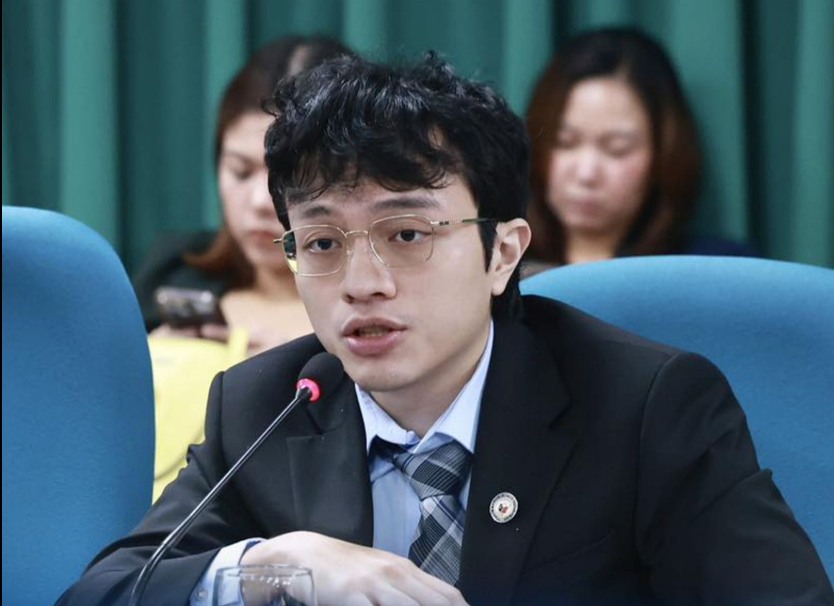In any healthy democracy, the first line of defense against the erosion of public trust is a relentless commitment to truth. When a flood-control scandal erupts—one that implicates vast sums of public funds and far-reaching contractors—the instinct to pursue accountability must be immediate, thorough, and transparent. There is reason for guarded optimism as reports suggest the current administration is willing to investigate and jail those responsible. But optimism without scrutiny is a dangerous breeding ground for cynicism. The public rightly worries that what looks like decisive action could turn into ordinary political theater—a smokescreen to conceal deeper, systemic failures in leadership, integrity, and accountability that have long haunted the BBM administration and its allies.
It is not merely a matter of who is investigated or jailed; it is a question of whether the process itself can withstand political manipulation and public skepticism. Three months have elapsed since the initial announcements, and yet many ask: where is the concrete accountability? In a political landscape where investigations are often announced with fanfare and then allowed to languish, the danger is that the same names will escape real consequences, the same habits will persist, and the public’s faith in the rule of law will erode further. Accountability is not a ticking clock or a public relations timeline; it is a standard of justice that must be applied consistently, irrespective of party, rank, or proximity to power.
One of the gravest concerns voiced by citizens is the possibility that the drive for accountability could be weaponized as a partisan tool. If the flood-control case becomes a cudgel to topple political opponents while shielding others who enjoy the protection of the inner circles of power, trust will not be repaired; it will be further fractured. The public deserves to see a process that is not dictated by who benefits politically, but by whom the facts and evidence point to. In moments like these, the independence of investigative bodies is not a luxury; it is a necessity. When a governance architecture places oversight bodies near the centers of executive power, the appearance of impartiality weakens, even if the intention remains sincere. The integrity of oversight—whether in the Independent Commission on Infrastructure (ICI) or any other institution tasked with vetting projects and expenditures—must be demonstrable in every step.
The issue of ICI’s independence is a particularly troubling thread in this tapestry. The public hears the claim of neutrality, yet observes that the commission operates within a framework that is not fully insulated from the executive’s sphere. If the ICI’s proximity to the presidency compromises its capacity to function as an objective guardian of accountability, then its findings will carry less weight with a citizenry already wary of grandstanding and selective justice. The DPWH—an agency central to the flood-control discussions—also sits in a position of near-symbiotic relationship with the executive apparatus. When the institution most intimately connected to the alleged misallocation of funds answers to the same power that appoints the custodians of oversight, the line between investigation and loyalty to leadership becomes blurred in the public’s eyes. In a situation like this, faith in the system hinges on clear, verifiable independence, with appointment processes that are transparent, merit-based, and insulated from ordinary political bargaining.
Three months into the current push for accountability, the Senate’s role has become a focal point for public frustration. The episodes surrounding Senator Ping Lacson—whether interpreted as principled political theater, a necessary constitutional drama, or a delay tactic—have animated debates about the speed and sincerity of the truth-seeking project. If momentum wanes because of procedural theatrics rather than the gravity of the allegations, the people are left to wonder whether the Senate serves the public interest or merely the theater of power. A robust framework for truth-seeking must be immune to the volatility of political headlines; it must insist on exacting standards of evidence, public disclosure, and predictable timelines that the public can monitor with confidence.
The core demand of the citizenry is straightforward: the whole truth about the flood-control scandal—and consequences for those found guilty. This insistence is not born of vengeance but a crystal-clear expectation that the law applies equally, that impunity has no sanctuary, and that leadership must be judged by the same yardstick as anyone else who betrays the public trust. The articulation of guilt and the delivery of justice should not be contingent on political affiliations, nor should the fear of destabilizing allies derail the process. The law, not the headlines, must govern the course of investigations, prosecutions, and, where warranted, penalties.
Beyond prosecutions, there is a broader imperative to reform the systems that allow misappropriation to occur in the first place. A sustainable fight against public-funds plunder requires institutional design that minimizes discretion, strengthens transparency, and enhances accountability at every stage of a project’s cycle. This includes tightening procurement rules, expanding open contracting, reinforcing independent auditing, and providing robust protections for whistleblowers who push against the pressure of patronage. Public funds should always travel along auditable paths, with public visibility into how decisions are made, by whom, and under what benchmarks of efficiency and integrity. Only through such structural reforms can the nation hope to close the gap between stated commitments and actual outcomes.
If there is to be a credible path forward, the leadership must demonstrate a willingness to be held to the highest standards of accountability—without selective enforcement, without excuses, and without the optics of virtue signaling. This means publishing comprehensive investigative findings, providing public dashboards of progress, and implementing access to information that allows independent researchers, journalists, and concerned citizens to verify what is being done. It means showing that no one is above the law, not because of a fear of political reprisal but because the preservation of democratic legitimacy depends on the public’s belief that justice is blind to rank and affiliation.
The cost of failing to deliver is not merely political erosion. It is the erosion of social trust that underpins every democratic institution—from the courts to the ballot box. When the public perceives that investigations are a staged performance rather than a genuine pursuit of truth, cynicism becomes a policy burden. Voters disengage, reform movements lose momentum, and future governance—indeed the health of the republic—suffers. The demand then is simple and unwavering: make the process credible, demonstrate independence, and deliver accountability that is complete, timely, and transparent.
In closing, the flood-control scandal must not be allowed to become a permanent fixture of political theater. It should instead be a catalyst for robust reform and a renewed promise that public offices exist to serve the common good, not the interests of a few. The public deserves to know the full scope of what happened, who benefited, and who must answer for their actions. Those found guilty must face consequences appropriate to the gravity of their offenses, and the institutions charged with safeguarding the public purse must gain back the public’s trust through unwavering integrity and accountability.
Let this moment be a turning point, not a retreat into status quo. The administration, the Senate, and the independent oversight bodies all bear responsibility for ensuring that the path from revelation to justice is clear, direct, and unimpeded by the distortions of power. The people deserve nothing less than a complete, credible, and verifiable account of the flood-control scandal—and a system that guarantees that such plunder will not recur. Only then can democracy endure with legitimacy, and only then can the nation move forward with confidence that its leaders truly place the public interest above political convenience.





Alright mates, just gave fi888bet a whirl. Pretty slick layout, easy to navigate even after a few, haha! Games are decent, and I actually managed a small win! Give fi888bet a go, might be your lucky day!
Hey guys! Winbetcasinobonus, I recently checked them out. Seems like a decent spot for some casual gaming. Nothing too crazy, but solid enough for a chill evening. Give winbetcasinobonus a try if you’re looking for something low-key.